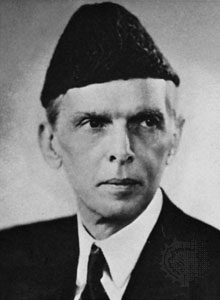by Syed Musawar Ahmad
As the news on October 16, 2017 came forward, one news took my attention.
Pakistan elected to UN Human Rights Council, polling 151 votes, and when the question was asked from the Pakistani diplomat about Pakistan’s objective on the council, Ambassador Lodhi said, “We will use our membership to protect our core national interests, uphold universal values , be a bridge builder between polarised positions and expose human rights abuses by India in occupied Kashmir.”
This is being deemed as the diplomatic success for Pakistan. In the past, Pakistani diplomats won the council seats and the most prominent one was the first Pakistani foreign minister, Sir Muhammad Zafarullah Khan, who was elected as the president of UN general assembly, a judge at the international court of justice and also served as the vice president of the same body. He was the permanent diplomat representing Pakistan for many years to come. He was also one of the most influential figures in UN, and on his death in 1985, his Majesty King Hussein bin Tallal of Jordan said:
“He was indeed a champion of the Arab cause and his ceaseless efforts whether among the Muslim and non-aligned countries or at the International Court of Justice will remain for ever a shining example of a great man truly dedicated to our faith and civilization.”
When we look at the religion of Sir Khan, he belonged to the Ahmadiyya Muslim community, a reformation campaign in Islam which was founded back in march, 1889. He was also one of the founders of Pakistan, and drafted the Lahore resolution in 1940 which were the basis of its creation. The founder of Pakistan, Muhammad Ali Jinnah called him his Political Son and offered him the first seat as a foreign minister in the cabinet of Pakistan in 1947.
In his address of August 11, 1947, Muhammad Ali Jinnah effectively gave his vision for the newly born state of Pakistan. Among many things, there was one issue which was clearly stated regarding separation of religion and state. He said, “You are free; you are free to go to your temples, you are free to go to your mosques or to any other place or worship in this State of Pakistan. You may belong to any religion or caste or creed that has nothing to do with the business of the State. “
However, just 27 years after the independence of Pakistan, the parliament made its business to decide the religion of its citizens. Ahmadiyya Muslim community, was declared as non-Muslims and an amendment was passed in the constitution to legalize it, giving way to the “fatwa” party to come to power and influence the legislation even today. Merely 10 years after the amendment was passed, another ordinance was passed-298 B and C- which effectively stripped this minority from practicing their faith freely. A brutal violation of human rights. Not just this, but the blasphemy law – article 295 – has been in the constitution which is being misused even today for personal gain.
Ahmadiyya muslim community and other minorities have been persecuted under these articles effectively, as the law protects them. Few days ago, one of the member of the National Assembly suggested to put forward a resolution to remove the name of Noble Laureate Dr Abdus Salam, an Ahmadi Muslim, who won the Nobel prize in Physics in 1979, and was the founder of the Pakistan’s space agency, SUPARCO-from the Physics department of the university named after the founder of Pakistan, ironic? He also added to stop enlisting Ahmadis in the armed forces.
Ahmadis also served on the prominent positions in the armed services of Pakistan.
General Akthar Hussain Malik, General Abul Ali Malik and General Iftikhar Janjua served prominently in the Indo-Pak wars of 1965 and 1971. In the history of the armed services, General Iftikhar Janjua is the only General who was martyred while fighting on the front lines. This member of National assembely was a captain in Pakistan army and son in law of the ex-Prime minister of Pakistan, who was disqualified from the office due to the charges of corruption and his name in Panama papers.
Current political environment in Pakistan is highly charged when it comes to religion. Just few days ago, 3 Ahmadi Muslims in Pakistan were sentenced to death for blasphemy. There is no basis for persecution or punishment for blasphemy according to the true principles of Islam. These individuals were convicted for tearing down posters carrying anti Ahmadi slogans and baselessly accussed of insulting the Prophet Muhammad (SAW). This is ironic in itself as Holy Prophet (SAW) himself withstood countless abuses with patience and prayer and was a beacon for religious freedom.
Blasphemy law is against the true principles of Islam, and it is being wrongly used by politicians, clerics and terrorists alike to stoke fire and encourage the environment of fear, intolerance and persecution of other minorities. However, when the above mentioned member of National Assembly made his speech, there were some good samaritans who opposed it and media slammed his statements by telling the truth of Ahmadiyya community role in the creation of Pakistan, and upholding the name of Pakistan in the international community.
In his Friday sermon of October 13, 2017, the head and Caliph of Ahmadiyya Muslim community asked the members of the community internationally and to the Pakistani members specially to pray for Pakistan. He said, “It is the duty of the Ahmadis residing in Pakistan to pray for the country in which Ahmadis offered sacrifices from the outset, that may God Almighty protect it, and may He protect us from the oppressive tyrants and the self-indulging clerics. May Pakistan be counted among the liberated and civilized countries of the world.”
For UN diplomats of Pakistan, congratulations on being voted into the council. As a Pakistani-American, it is a great deal and matter of pride for me, while America has the distinct history of serving as an advocate for human rights for the oppressed, please start from our own home, abolish these constitutional amendments, separate the business of state and religion of its citizens. Throw out the fatwa factory from the parliament, it has given nothing to Pakistan in the past 40 years but the fear of persecution, intolerance, and terrorism. Jinnah had a great vision and foresightedness for this country, as he knew the strategic value of Pakistan, however, if the insult to his vision continues, it will continue this environment of terror and insult to the rights of its citizens.


